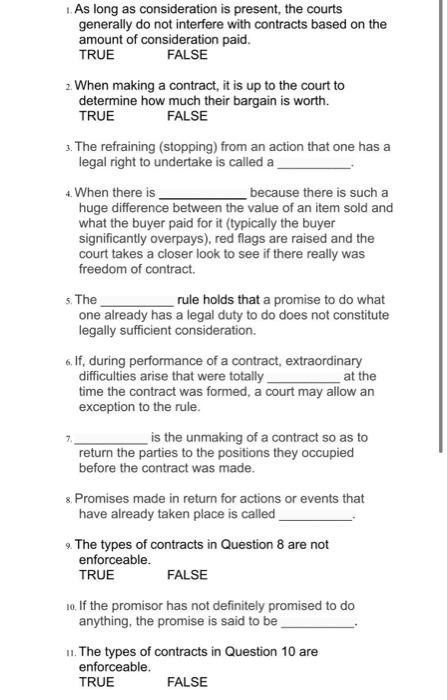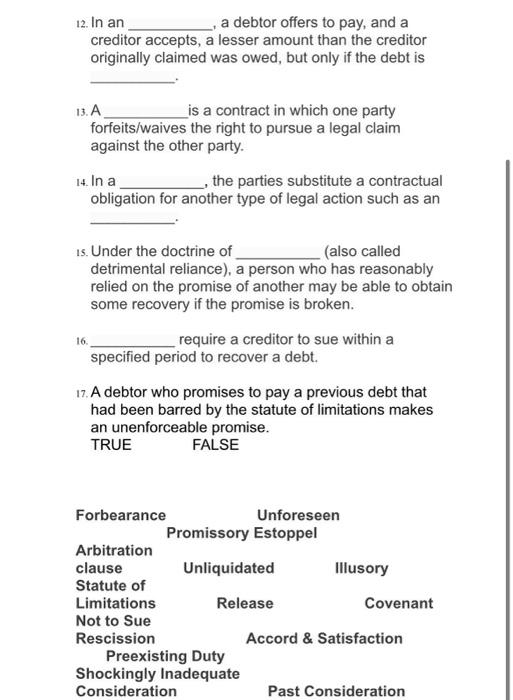1. As long as consideration is present, the courts generally do not interfere with contracts based on the amount of consideration paid. TRUE FALSE 2. When making a contract, it is up to the court to determine how much their bargain is worth. TRUE FALSE 3. The refraining (stopping) from an action that one has a legal right to undertake is called a 4. When there is because there is such a huge difference between the value of an item sold and what the buyer paid for it (typically the buyer significantly overpays), red flags are raised and the court takes a closer look to see if there really was freedom of contract. s. The rule holds that a promise to do what one already has a legal duty to do does not constitute legally sufficient consideration. 6. If, during performance of a contract, extraordinary difficulties arise that were totally at the time the contract was formed a court may allow an exception to the rule. is the unmaking of a contract so as to return the parties to the positions they occupied before the contract was made. 8. Promises made in return for actions or events that have already taken place is called 2. The types of contracts in Question 8 are not enforceable. TRUE FALSE 10. If the promisor has not definitely promised to do anything, the promise is said to be 11. The types of contracts in Question 10 are enforceable. TRUE FALSE 12. In an , a debtor offers to pay, and a creditor accepts, a lesser amount than the creditor originally claimed was owed, but only if the debt is 13.A _is a contract in which one party forfeits/waives the right to pursue a legal claim against the other party. 14. In a the parties substitute a contractual obligation for another type of legal action such as an is. Under the doctrine of (also called detrimental reliance), a person who has reasonably relied on the promise of another may be able to obtain some recovery if the promise is broken. require a creditor to sue within a specified period to recover a debt. 16. 17. A debtor who promises to pay a previous debt that had been barred by the statute of limitations makes an unenforceable promise. TRUE FALSE Forbearance Unforeseen Promissory Estoppel Arbitration clause Unliquidated Illusory Statute of Limitations Release Covenant Not to Sue Rescission Accord & Satisfaction Preexisting Duty Shockingly Inadequate Consideration Past Consideration








